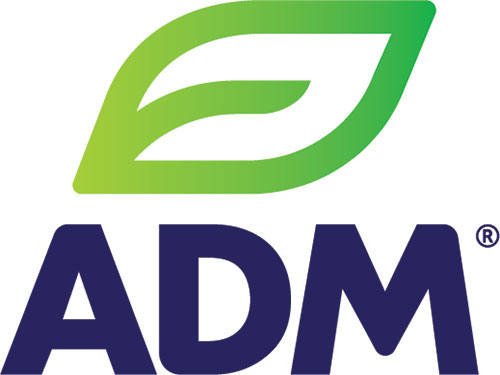Optimizing milk efficiency and component yield are very important to overall farm profitability. Both milk efficiency and component yield are greatly influenced by the rations fed. ADM dairy nutritionist, Dr. Brian Lammers, shares his insights on how to feed your cows to maximize milk efficiency, milk fat, and milk protein production.
Feed costs are the largest expense on a dairy farm. During these challenging times, feed costs are magnified now more than ever, making components included in your ration critical for success. Increasing the efficiency that cows convert feed to milk protein and fat, improves dairy farm profitability substantially. Milk efficiency is one of the most important performance metrics for the cow side of the dairy farm.
The lactating dairy cow is possibly the most complex animal to feed a balanced diet. Providing the optimal type and amounts of available protein and energy for the rumen microbes is necessary, as well as sufficient effective fiber to maintain rumen health, and the correct ME and MP (Metabolizable Energy and Protein) to provide for her maintenance and milk production needs. Like air pressure within a car or truck tire, too much or too little of a nutrient will decrease component yield and milk efficiency.
Lysine is an essential amino acid which is not produced is sufficient quantities by the body and therefore must be consumed in the diet to support biochemical functions. “Lysine is a biological building block that supports improved production performance in lean tissue gain, milk components and milk volume*”. Lysine is one of 10 essential amino acids can be sourced from various feeds stuffs or ingredients. However, these source can be inconsistent in their lysine content leading to unreliable production responses.
Not all sources of lysine are the same. Some products are not as effective against microbial breakdown in the rumen, while others are too tightly protected and do not release as much of the lysine as necessary to the animal in the small intestine. Using unique chemistry and manufacturing technologies, ADM researchers have developed NutriPass™ L, an encapsulated lysine product resistant to breakdown in the rumen and releases the lysine when it enters the small intestine.
Contact 866-666-7626 or animalnutrition@adm.com to ask for our data against competitive sources of lysine and incorporate NutriPass L in your rations today.
* University of Arizona, (2003, Sept 30). Department of Biochemistry and Molecular Biophysics

About ADM Animal Nutrition
ADM is a global leader in animal nutrition, providing amino acids, additives, ingredients, tailor-made premix formulations and complete feed for the production animal, aquaculture and companion animal markets. With more than 110 production facilities around the world, and unmatched research and development capabilities, ADM Animal Nutrition provides innovative individualized solutions to support its customer’s growth and optimize value creation and differentiation, while reinforcing food safety and animal health and wellness.
Learn more at www.ADMAnimalNutrition.com/Specialty.

